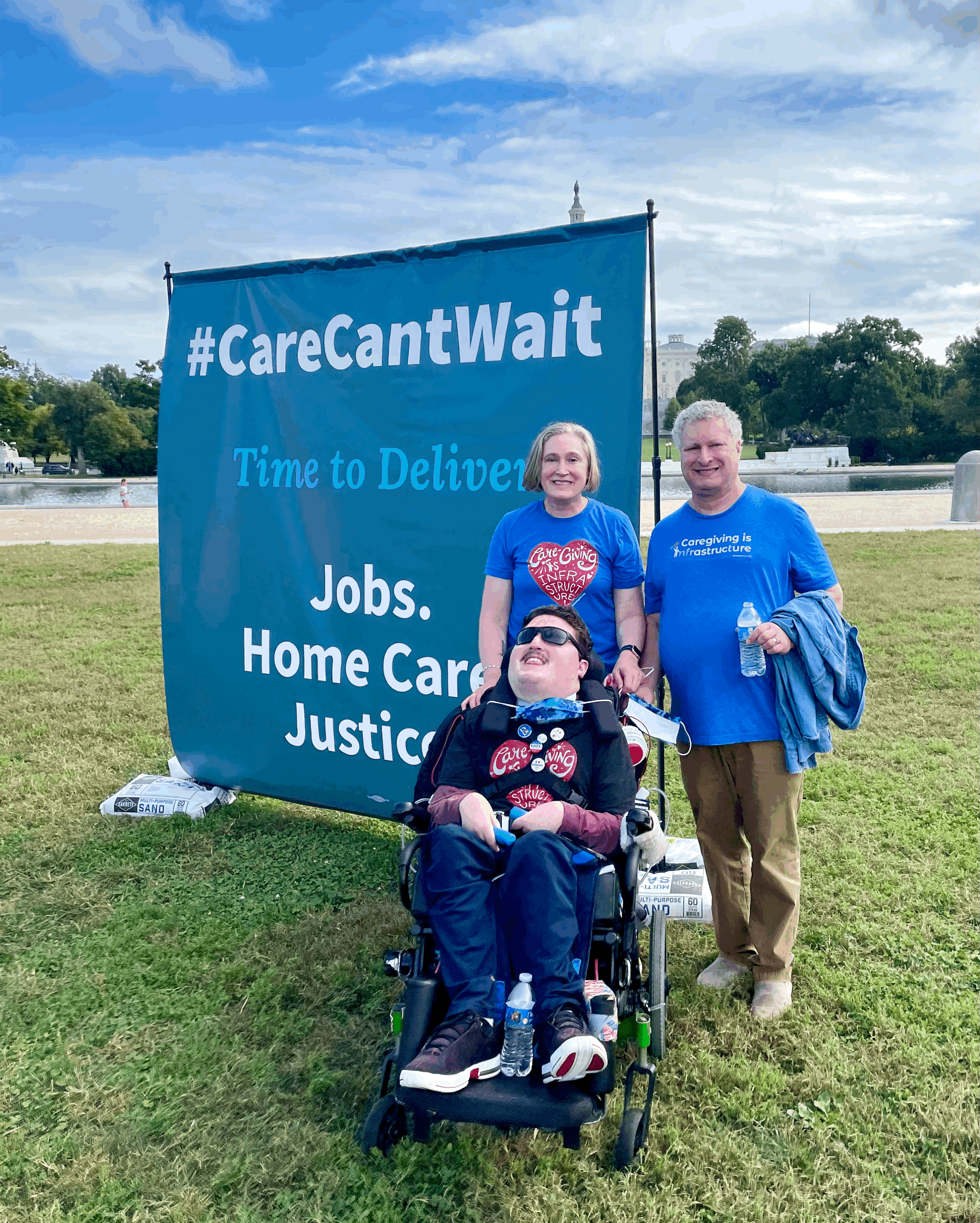Home and Community-Based Services Are a Human Right (by Jeneva Stone)

(Editor's note: edited and republished on 5/13/2025)
In 1981, President Ronald Reagan learned about a 3-year-old girl with complex medical needs and disabilities named Katie, who was forced to live in an institution because federal rules governing Medicaid prevented her from getting the care she needed at home. President Reagan knew this was wrong, so he created the Medicaid waiver program, allowing states to "waive" Medicaid's institutional bias for people with disabilities, like Katie, who wanted to get the care they needed in their own homes and communities.
This right to what we now call Home and Community-Based Services (HCBS) was later affirmed by the U.S. Supreme Court's Olmstead decision in 1999. But, 40 years after President Reagan brought Katie home to her parents, and 22 years after the Supreme Court declared that segregating people with disabilities in institutions violated civil rights, Medicaid rules are still forcing people to live in institutions in order to get the care they need to survive.
Why is it so hard for Congress to allow people with disabilities the freedom to live in their own homes and communities? Medicaid has been a life-saving program, but it has one major flaw that disability activists have been trying to correct for decades: Medicaid’s “institutional bias.”
When I originally sought Medicaid services for my disabled son Rob in the early 2000s, I just assumed that my son could be cared for at home. I mean, that’s where people belong, right? I didn’t understand what requirements were “waived” by the HCBS programs. Medicaid generally serves people, disabled and nondisabled, with incomes that are close to or below the federal poverty threshold. Was it that Rob was a dependent disabled child that made him eligible? Was it our income, which was well above the federal poverty level, that was being waived? I knew that Rob, himself, could only have $2,000 or less in assets at any time in order to qualify.
All of the above is part of what qualifies people for Home and Community-Based Services programs. But none of these are the main restriction that’s being “waived.”
Medicaid is run jointly by the states and the federal government. It was created in 1965 in order to ensure that people living in poverty, and those whose disabilities required 24/7 or nursing-level services, were guaranteed care.
But, Medicaid only entitles disabled and elderly people to receive care if they are in an institution, nursing home, or other licensed Medicaid facility. According to federal law, there are to be no waiting lists for institutional care.
And that’s Medicaid’s institutional bias. That’s what’s being waived in Home and Community-Based Service programs, the requirement that you live in an institutional setting to receive the care you need to survive.
It wasn’t until 1981--when Katie Beckett’s parents found out they couldn’t bring their disabled daughter home from the hospital--that the system finally began to change. In 1983, Congress finally allowed states to “waive” Medicaid’s institutional care restrictions and, for dependent children with disabilities, family income could also be waived. This new home care system was given the name “Home and Community-Based Services.”
But Congress has never fully funded the home care system, preventing thousands who need HCBS from accessing care. Forty years later, it’s still the case that NO American is entitled to receive care in their own homes through Medicaid, and the government will only guarantee care in an institutional setting. Forty years later, we have over 800,000 people on waiting lists for home care because states can limit HCBS waivers and the vast majority of Americans with disabilities, and a rapidly growing number of seniors, do NOT want to receive care in an institution.
That’s why all of us with lives at stake need to keep pushing to FINALLY get full funding for HCBS.
Jeneva Stone is the blog manager for Little Lobbyists, and she also volunteers her time with several other disability and health care organizations. She is also a writer. Her son Rob is a disability rights and health care advocate, as well as an artist.
